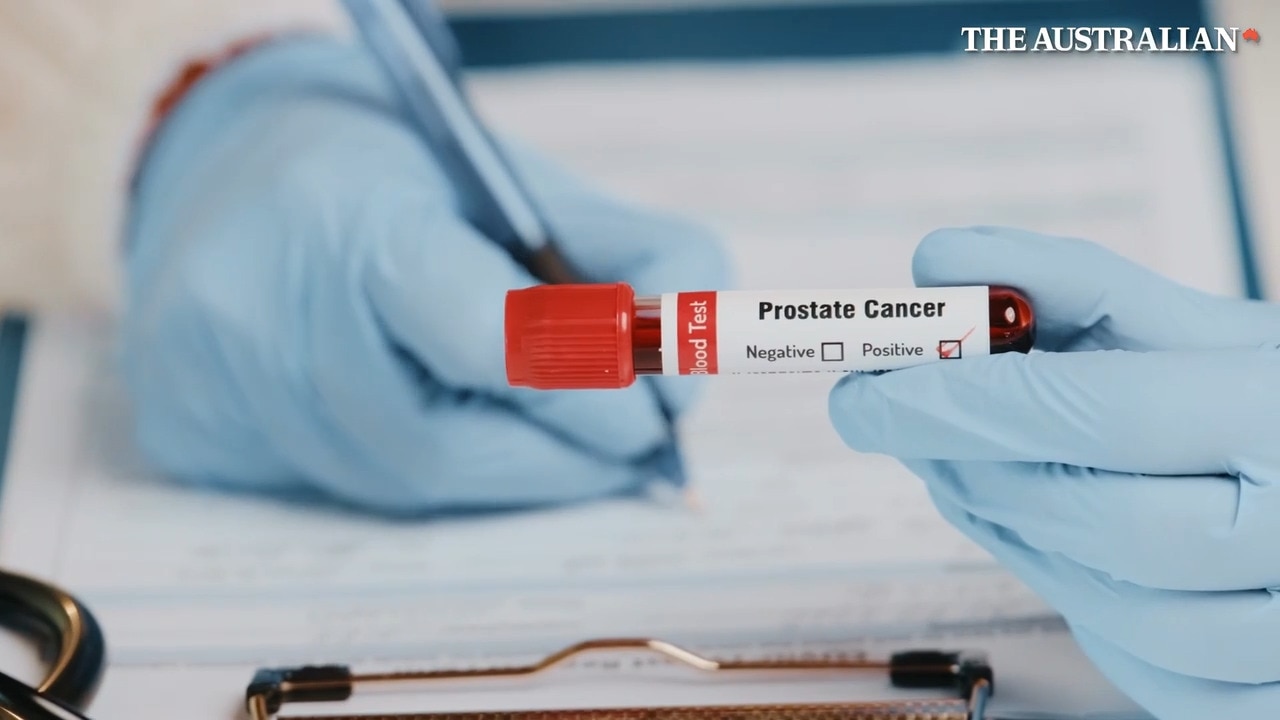Peter’s prostate cancer diagnosis came as a shock. Now, he wants to protect his kids
Peter had no symptoms when he was diagnosed with prostate cancer. Now, he’d like to see an expansion of genetic testing in the hope it could help save more lives and reduce anxiety

When Peter Schweizer was eyeing up his 50th birthday he decided the time had come to focus on getting fit and healthy. The German expat had moved to Australia decades ago after falling in love with the place while here for work.
“I’ve been doing shipping logistics all my life,” he recalls. “I spent some time in Japan and the US, and then eventually, through my company, ended up in Australia and had my children here.”
Mr Schweizer and his new wife share seven children between them and keeping up with them was a driver behind his health kick. He focused on his diet and started cycling and running and, four years on, has dropped almost 40kg. Then, just last year, he went to his GP for a routine check-up that proved potentially lifesaving.
“I’ve got a very young and proactive GP here on the Gold Coast who always had my PSA levels checked. He just noticed that they were slightly rising. Then he referred me to the oncologist and we did the biopsy and I suddenly had prostate cancer, stage two, with absolutely no symptoms at all.”
PSA, or prostate-specific antigen, is a protein produced by the prostate gland and it can be monitored via a blood test. A high reading does not automatically mean a person has prostate cancer but, in some cases, it can be an indicator of the disease.
Peter Schweizer’s cancer was contained and a surgeon was able to remove the prostate and the cancer. Both his uncle and grandfather also had prostate cancer and Mr Schweizer questions if his own father may have too.
“I lost my parents very young. My dad was 48; he died of bowel cancer which I now realise could have also been prostate cancer that was never diagnosed because he was afraid of going to the doctor and when he did finally go, it was too late. It’s not the 70s or 80s any more, it’s okay to be afraid but it’s also okay to go to the doctor.”
The Australian Institute of Health and Welfare estimates prostate will be the most commonly diagnosed cancer for males this year, with 26,400 cases.
The good news is mortality rates from the disease have been declining since the 1990s. Though, while the rate is declining, the growing and ageing population means the overall number of deaths from it is rising.
Data from the AIHW shows that in the year 2000 there were 62 deaths per 100,000 males. Flash forward to 2024 and that figure sits at 33 deaths per 100,000 males.
According to the Prostate Cancer Foundation of Australia, as many as one in 10 cases of prostate cancer may have a genetic link. It’s a statistic that worries Mr Schweizer who would like to see genetic testing expanded further, to better protect more families.
“I’ve had my prostate removed but I need no further medication at this stage because it was detected early. I’m thinking, if it can be detected even earlier, the cost associated with it and the anxiety would be much less.”

That’s also the finding of new research conducted by the University of Queensland and funded by the Prostate Cancer Foundation of Australia which concluded genetic testing first-degree family members of men with prostate cancer may save lives.
Professor Haitham Tuffaha was the study’s senior author. “Genetic mutations in DNA can be inherited, meaning these mutations can affect not only patients but their family members as well,” he said. “Our research demonstrates that expanding genetic testing to include close family members can amplify health benefits, allowing early detection and preventive action. This approach is not only cost-effective, but essential for helping more Australians stay ahead of this disease.”
His research also showed genetic testing of men with advanced prostate cancer could allow for more targeted treatments, thereby reducing the risks associated with conventional therapies like chemotherapy.
“What we wanted to explore is, how would genetic testing affect the selection of treatment for those patients? Because we currently have targeted treatments, meaning targeted instead of people receiving chemotherapy or hormonal therapy, they can receive treatments that directly act on the cause of the disease, which is the mutation in their DNA, and that will help them achieve better outcomes and also reduce the side effects of chemotherapy.
“Our study confirmed that offering genetic testing for men with advanced cancer is a value-based approach, is a cost-effective approach to help them improve survival and also improve their quality of life.”
According to PCFA chief executive Anne Savage, the benefits of expanding eligibility around genetic testing could be significant. At present, many genetic tests are not yet routinely available or subsidised by Medicare.
“Prostate cancer now accounts for spending in the order of $1.5 billion every year, accounting for the greatest proportion of cancer-related expenditure on the PBS,” she said.
“It is a little-known fact that the genetic mutations that cause some breast and ovarian cancers can also increase men’s risks of prostate cancer, and that those genes can be passed on by fathers to their daughters,” she said.
“This study found that genetic testing of men with prostate cancer for the BRCA 1 and 2 mutations, when performed as a stand-alone strategy in patients with advanced disease, has a limited ‘cost benefit’ when compared to an approach that includes cascade testing of their first-degree relatives.
“It proves that access to subsidised genetic testing for families impacted by prostate cancer would deliver substantial health and economic benefits, allowing us to take preventive action on the country’s leading causes of cancer-related death.”
While the study did not look at the overall cost of expanding genetic testing, PCFA is considering investing in additional research to build on the findings.
Until that happens, Peter Schweizer has used his own experience to educate his children about their own screening and encouraged them to seek it out early, even digging into their own pockets if needed.
He’s been given the cancer “all clear” by his doctors and has resumed exercising again. He’s even set himself some pretty impressive goals. “I’m training for a half marathon,” he said. “I’m also trying to get rid of 10 kilos that I gained while I was being sooky that I got cancer!
“The only side effects I still have, and it is only while I run, there’s a bit of leakage, so I wear a pad while I run. But I understand that’s a very common issue for women who gave birth so, I’m not alone and I guess the biggest thing. Fortunately, no nerves have to be cut, but getting back the erectile function is still a work in progress.”
Mr Schweizer encouraged others to be open about their health and to use their support networks if they felt anxious.




To join the conversation, please log in. Don't have an account? Register
Join the conversation, you are commenting as Logout